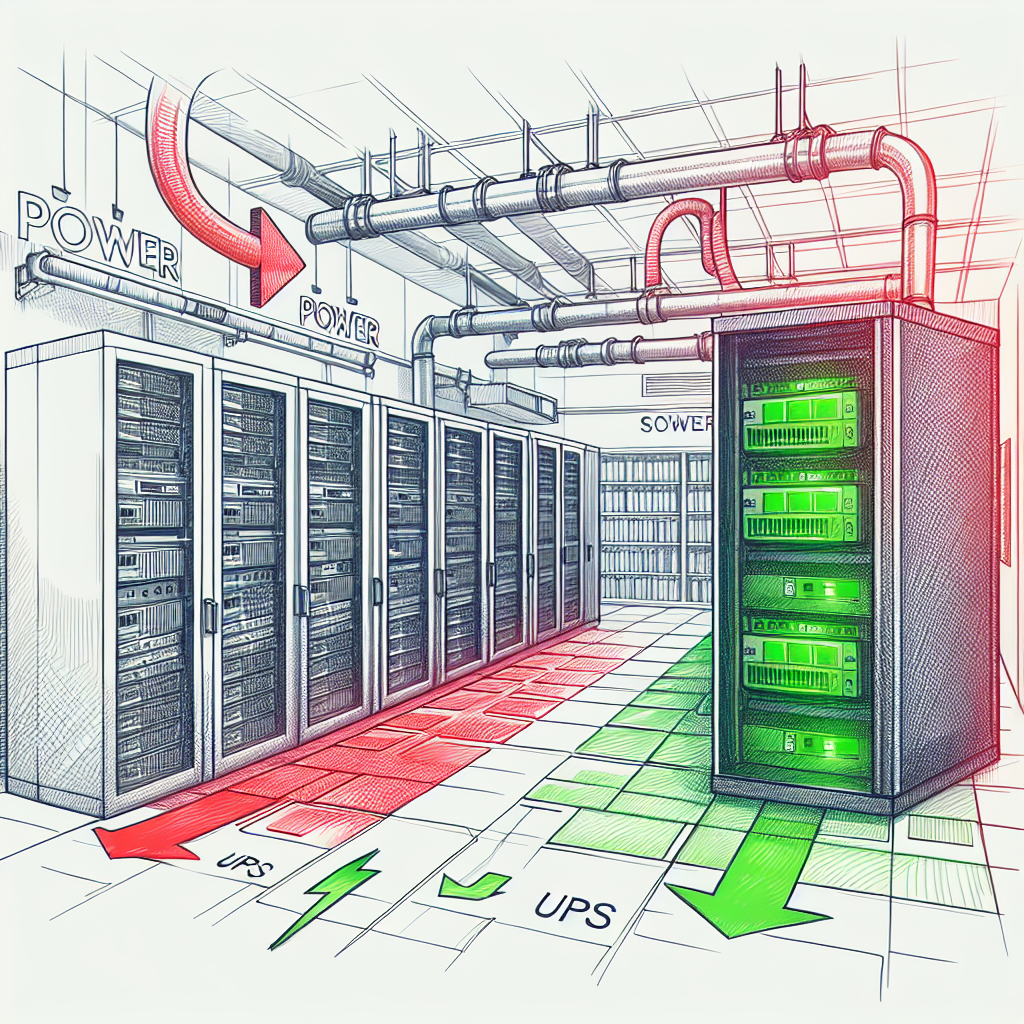Your cart is currently empty!
How UPS Systems Help Data Centers Maintain Critical Operations During Power Failures

In today’s digital world, data centers play a crucial role in storing and processing vast amounts of information for businesses, organizations, and individuals. These facilities house servers, networking equipment, and other hardware that are essential for running applications and storing data. However, one of the biggest challenges data centers face is ensuring uninterrupted power supply to keep operations running smoothly.
Power failures can occur due to various reasons such as natural disasters, equipment failures, or grid outages. When a data center experiences a power outage, it can have significant consequences, including downtime, data loss, and potential damage to hardware. To prevent such disruptions, data centers rely on Uninterruptible Power Supply (UPS) systems to provide backup power during emergencies.
UPS systems are designed to bridge the gap between the loss of utility power and the activation of backup generators. These systems typically consist of batteries that are continuously charged when utility power is available. In the event of a power outage, the UPS system switches to battery power within milliseconds, ensuring that critical equipment in the data center remains operational until the generators kick in.
UPS systems offer several benefits to data centers, including:
1. Continuous Operation: UPS systems ensure that data centers can continue to operate without interruption during power outages. This is crucial for businesses that rely on 24/7 access to their data and applications.
2. Protection of Hardware: Power surges and fluctuations can damage sensitive equipment in data centers. UPS systems regulate the voltage and provide clean power to prevent damage to servers, networking devices, and storage systems.
3. Data Integrity: Sudden power loss can lead to data corruption or loss. UPS systems give data centers enough time to shut down systems properly and prevent data loss or corruption.
4. Cost Savings: Downtime caused by power failures can result in lost revenue and productivity. UPS systems help minimize downtime and reduce the financial impact of power outages on businesses.
5. Compliance: Many industries have strict regulations regarding data protection and uptime. UPS systems help data centers comply with these regulations by ensuring continuous operation and data integrity.
In conclusion, UPS systems play a critical role in helping data centers maintain their operations during power failures. By providing backup power, protecting hardware, ensuring data integrity, and minimizing downtime, UPS systems help data centers safeguard their valuable information and maintain business continuity. As the reliance on data centers continues to grow, investing in UPS systems is essential to ensure the reliability and availability of critical services.

Leave a Reply